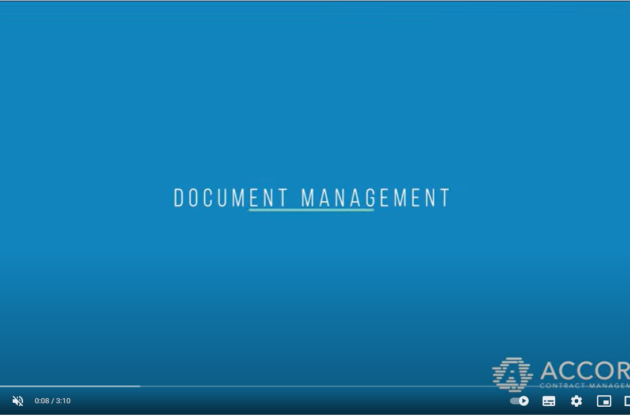- Why Accord
- PricingWe don’t hide behind fancy sales teams before we tell you, our prices.
- Clients
See who we are working with and what they have to say about Accord.- Resources
Book a demoCommon Challenges
Understand key challenges in contract management and effective solutions. Gain valuable insights and practical tips to overcome these obstacles.
Achieving Effective Contract Management
Learn what effective contract management looks like and gain insights into the best practices and strategies that can revolutionize your business operations.
Digitally Transforming the Contract Management Process
Discover the incredible potential of digital transformation through our compelling case studies and insightful blogs. Explore how businesses similar to yours have harnessed the power of digital solutions to streamline their contract management processes and achieve unparalleled efficiency.
Product Videos
View our useful product videos for further insight on how Accord works.
Accord’s A-Z Glossary
The process of obtaining goods, services, or works from an external source, typically through a contract.
A formal offer submitted by a supplier or contractor in response to a request for proposal (RFP) or invitation to tender (ITT).
A legally binding agreement between two or more parties outlining the terms and conditions of a procurement transaction.
The process of thoroughly researching and investigating a potential supplier or contractor to assess their capabilities, financial stability, and reputation.
The process of assessing and comparing bids or proposals to determine the best supplier or contractor for a specific procurement project.
A long-term agreement with pre-approved suppliers that establishes the terms and conditions for future procurements.
The set of rules, policies, and procedures that guide the procurement and contract management process to ensure compliance and efficiency.
Supplier hierarchy is the categorisation of suppliers based on their importance and performance, often used for strategic sourcing decisions.
Your internal hierarchy is your organisational structure and the roles and responsibilities of individuals or teams involved in managing contracts within a company or organisation. It outlines the chain of command and the distribution of authority for decision-making and contract-related activities. The internal hierarchy ensures clear communication, accountability, and efficient contract management processes. Some common roles within the internal hierarchy for contract management include:
- contract manager
- procurement team
- finance team
- legal counsel
- supply chain manager
- operations
- contract administrator
A formal invitation to suppliers to submit bids or proposals for a specific procurement project.
A procurement strategy where goods and services are purchased as needed, minimizing inventory and storage costs.
Key Performance Indicators (KPIs): Measurable metrics used to assess supplier performance and contract compliance.
The time it takes for an order to be fulfilled from the moment it is placed until it is received by the customer.
A broad contract that establishes terms and conditions for all future transactions between a buyer and a supplier.
The process of discussing and reaching mutually agreeable terms and conditions with suppliers or contractors.
The practice of delegating certain business functions or processes to external suppliers or service providers.
The process of acquiring goods, services, or works, including sourcing, purchasing, and contract management.
The process of ensuring that purchased goods or services meet the specified quality requirements.
A formal document requesting suppliers or contractors to submit detailed proposals for a specific project.
The strategic approach to managing and improving relationships with key suppliers.
A section in the contract that outlines the conditions and procedures for ending the agreement prematurely.
The percentage of time a manufacturing, distribution facility or IT service is operational and producing output.
The assessment of whether a procurement provides the best combination of price, quality, and performance.
A guarantee provided by the supplier that their goods or services will meet specified requirements for a certain period.
Cross-Functional Collaboration: The cooperation and communication between different departments involved in the supply chain, such as procurement, logistics, and production.
The process of conducting comprehensive reviews of contracts at the end of the fiscal year to assess performance, compliance, and identify areas for improvement.
A strict policy that enforces immediate action or penalties for any contract violation, ensuring compliance and adherence to contract terms.
- Clients

















